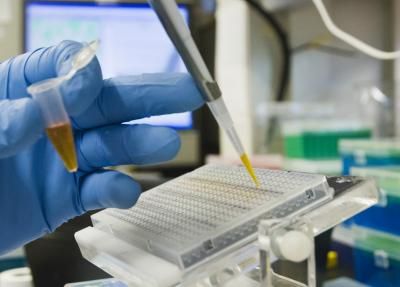Mesoblast Reports Positive Results Using Intravenously Injected Adult Stem Cells for Type 2 Diabetes
Mesoblast Limited announced that a single intravenous injection of its proprietary adult stem cells resulted in significant lowering of blood sugar levels for up to eight weeks in a controlled, randomized preclinical trial in non-human primates with type 2 diabetes. This was accompanied by significant reductions in circulating inflammatory markers to levels associated with protection against heart attacks and death in patients with Type 2 diabetes. Results of the study were presented at the Credit Suisse Healthcare conference in Phoenix, Arizona.
A randomized, placebo-controlled study was performed in 17 non-human primates with dietary-induced Type 2 diabetes to evaluate the effects of a single intravenous injection of Mesoblast's proprietary allogeneic, or off-the-shelf, Mesenchymal Precursor Cells (MPCs) on blood glucose levels over an eight week period. Controls (n=3) received a single saline injection, while four groups of treated subjects (3-4 per group) received one of 4 escalating doses of MPCs (0.1, 0.3, 1 and 2 million MPCs/kg).
At baseline, the high mean fasting blood glucose levels were not significantly different between any of the Type 2 diabetic groups. Over the eight week period of the study, the control group showed no significant changes in the high levels of fasting blood glucose. In contrast, a single injection of MPCs at every dose tested significantly reduced fasting blood glucose levels as early as two weeks (p<0.001 for each dose), with a clinically meaningful reduction in fasting blood sugar levels of up to 80 mg/dl by four weeks. There was a dose-dependent effect, with the highest three MPC doses maintaining sustained reductions in fasting blood glucose over the entire eight week study period, and the lowest MPC dose being least effective. Over the eight weeks, the groups receiving 1 and 2 million MPC/kg maintained significantly lower mean fasting blood glucose levels compared with the control group (respectively, 119 mg/dl and 110 mg/dl vs 154 mg/dl, both p<0.05). The mean fasting blood glucose level in the group which received 0.3 million MPC/kg (130 mg/dl) was moderately lower than the controls (154 mg/dl), while the lowest dose at 0.1 million MPC/kg was without effect (160 mg/dl vs 154 mg/dl).
In MPC treated subjects, there was a direct correlation between reductions in fasting blood glucose levels over time and reductions in circulating C-reactive protein (CRP). CRP is a major inflammatory marker which is highly predictive of risk for heart attack and cardiac death when present at levels >3 mg/L in people with Type 2 diabetes. At eight weeks, mean CRP levels were 1.3 mg/L, 1.1 mg/L and 1.6 mg/L in the groups who received 0.3, 1 and 2 million MPC/kg, compared with 3.9 mg/L and 4.9 mg/L in the groups who received saline and 0.1 million MPC/kg, respectively (p<0.05 for the pooled highest three doses vs pooled controls and lowest dose).
These results in non-human primates build on an earlier study which showed that a single dose of human MPCs injected into mice with diabetes resulted in a significant increase in blood insulin levels and sustained reduction in blood glucose levels for the entire three-week period of follow-up. This was due to restoration in the damaged pancreas of the balance between insulin-producing beta cells, which reduce blood glucose, and glucagon-producing alpha cells, which increase blood glucose.
Mesoblast Chief Executive, Professor Silviu Itescu, said that the results obtained to date indicate that a single intravenous injection of Mesoblast’s MPCs may have a sustained benefit on blood glucose control, reduce inflammation, and improve lipid profile in patients with Type 2 diabetes.
Other news from the department research and development

Get the life science industry in your inbox
By submitting this form you agree that LUMITOS AG will send you the newsletter(s) selected above by email. Your data will not be passed on to third parties. Your data will be stored and processed in accordance with our data protection regulations. LUMITOS may contact you by email for the purpose of advertising or market and opinion surveys. You can revoke your consent at any time without giving reasons to LUMITOS AG, Ernst-Augustin-Str. 2, 12489 Berlin, Germany or by e-mail at revoke@lumitos.com with effect for the future. In addition, each email contains a link to unsubscribe from the corresponding newsletter.






















































